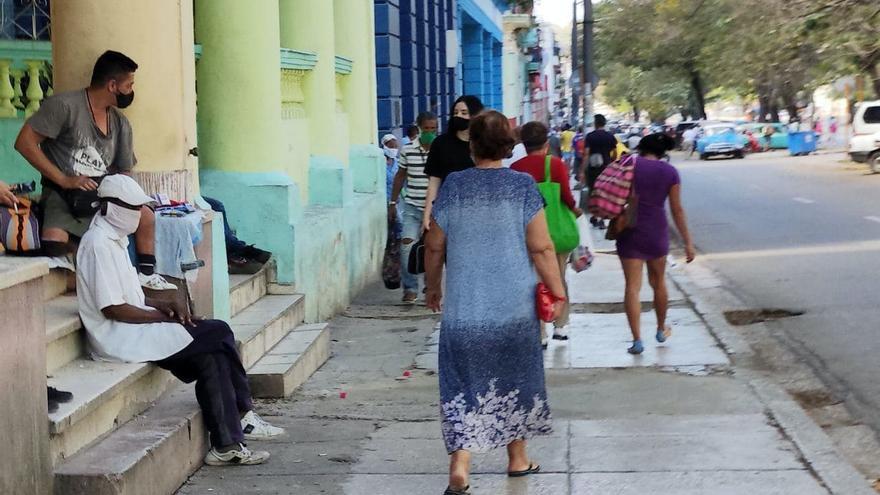
![]() 14ymedio, Havana, 9 February 2021 — Havana’s Government decided to once again impose a restriction on residents, against shopping in any municipality in the capital city other than their own. The measure goes into effect on Wednesday, as a part ot the measures to try to stop the spreading of Covid-19. Measures already in effect include limitations on transport and a night curfew.
14ymedio, Havana, 9 February 2021 — Havana’s Government decided to once again impose a restriction on residents, against shopping in any municipality in the capital city other than their own. The measure goes into effect on Wednesday, as a part ot the measures to try to stop the spreading of Covid-19. Measures already in effect include limitations on transport and a night curfew.
The same rules to stop the spread of the virus were already in place in the capital between August 27 and October 1. As during that period, Havanans must show their identity card, or an authorization of they live at a different address than that shown on their identity document.
A Temporary Use Card will be issued, as they were previously, to make purchases for all those residents without an officially registered address in the capital, which caused some problems last summer.
Luis Carlos Góngora Domínguez, vice president of the Provincial Administration Council, said that the measure does not apply to foreigners with permanent residence in the country, who may buy in all municipalities, “as well as other categories of people whose official identity document does not contain their residence address.”
Stores that require shoppers to pat with freely convertible currency and agricultural markets are also outside this rule.
The authorities sat that “they will work to achieve an equitable distribution of basic necessities, including those that meet the needs of children and the elderly,” and that they have launched “a network of 154 places” that will offer supplies at least one once a week, “to meet the demand of those populations where commercial coverage is not adequate.”
The growing shortage of basic products forces residents of the Cuban capital to travel to various municipalities in order to buy food. While some areas of the city, such as Centro Habana, La Habana Vieja, and El Vedado have a wider commercial life, other areas have fewer state sales outlets.
When the same measures were implemented last September, one of the collateral effects was that many goods disappeared into the black market, in addition to an increase in the home delivery of processed food, as well as food in general, cleaning products and articles from informal networks.
Luis Antonio Torres Iríbar, president of the Provincial Defense Council, declared this Monday that “the epidemiological logic would indicate a total closure,” but that “Cuba does not have the millions in reserves to do so and it is necessary to go out every day, looking for food and services.”
In this latest outbreak of the coronavirus, the capital has remained in the lead in the number of daily cases, sometimes having more than half of the infections reported in the country as a whole. This Tuesday was no exception: of the 580 positives registered on Monday, 292 are in Havana.
____________
COLLABORATE WITH OUR WORK: The 14ymedio team is committed to practicing serious journalism that reflects Cuba’s reality in all its depth. Thank you for joining us on this long journey. We invite you to continue supporting us by becoming a member of 14ymedio now. Together we can continue transforming journalism in Cuba.
